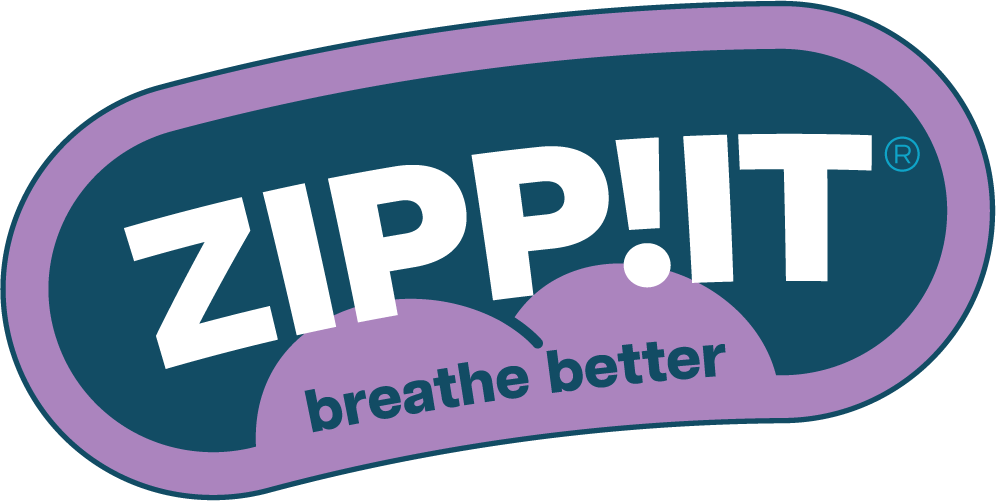Always wake up with a dry mouth in the morning? Mouth breathing might be the cause
Do you often wake up with a dry mouth? Mouth breathing might be the culprit!
This common problem often goes unnoticed, but it can have major consequences for your health. Unlike nose breathing, where air is filtered and humidified, mouth breathing is less efficient and causes all sorts of discomforts. In this article, you’ll discover why this happens, what the consequences are, and how you can tackle it. We cover everything from dry mouth to solutions like mouth tape, so you can wake up feeling refreshed without that annoying dry sensation.

The Causes of Mouth Breathing Revealed
Mouth breathing occurs when you mainly breathe through your mouth instead of your nose. A blocked nose due to allergies, a cold, or sinusitis is often the main cause. Your body then automatically seeks an alternative route for oxygen—through your mouth.
Anatomical factors such as a deviated septum or enlarged tonsils can also contribute to mouth breathing. These physical barriers make nose breathing more difficult, making mouth breathing the easiest option. Interestingly, mouth breathing can become a habit, even after the original cause has been resolved. This habit often develops in childhood and can persist into adulthood without intervention.
Other factors that contribute to mouth breathing include:
-
Chronic allergies leading to nasal congestion
-
Nasal polyps blocking the airways
-
Enlarged tonsils or adenoids
-
Abnormalities in the structure of the nose or palate
-
Chronic inflammation of the nasal cavity
A lesser-known cause is stress, which speeds up and shallows your breathing. Breathing experts emphasize how important it is to be aware of your breathing pattern, especially during stressful moments.
The Far-Reaching Consequences of Chronic Mouth Breathing
The impact of mouth breathing goes far beyond just a dry mouth in the morning. By consistently breathing through your mouth, you miss out on the important filtering and protective functions of nose breathing. Your nose is designed to filter, humidify, and warm the air before it reaches your lungs.
A direct result is dehydration of your mouth and throat. This is not only uncomfortable, but also increases your susceptibility to infections. Saliva has important antibacterial properties. Without enough saliva, bacteria have free rein, which can lead to gum problems, tooth decay, and bad breath.
The consequences of mouth breathing can manifest as follows:
-
Chronic dry mouth and throat
-
Increased risk of dental problems such as cavities and gum inflammation
-
Bad breath (halitosis)
-
Disturbed sleep and sleep apnea
-
Reduced oxygen absorption in the blood
-
Daytime fatigue due to poor sleep quality
-
Negative impact on facial development in children
Research shows that mouth breathing during sleep increases the risk of snoring and sleep apnea. This can lead to chronic fatigue, concentration problems, and even cardiovascular disease in the long term. In children, the consequences may be even more severe—prolonged mouth breathing can affect the development of the face, jaw, and even posture.
Why Do You Have a Dry Mouth Every Morning?
That unpleasant dry feeling in your mouth in the morning is a classic symptom of mouth breathing during sleep. When you breathe through your mouth while sleeping, the mucous membrane is constantly exposed to air, leading to evaporation of moisture.
During normal sleep, your body regulates breathing through the nose, ensuring optimal humidification of the inhaled air. With mouth breathing, you lose this natural humidification and dry air enters your body directly.
The question "why do I have a dry mouth every morning" has several possible answers:
-
Mouth breathing during sleep (most common cause)
-
Sleep apnea or other sleep disorders
-
Medications with dry mouth as a side effect
-
Dehydration before bedtime
-
Air that is too dry in the bedroom due to heating or air conditioning
Many people don’t even realize they breathe through their mouth at night. Partners often notice it first, either by the sound or by seeing someone sleeping with their mouth open. Self-awareness is therefore the first step toward a solution.
ENT doctors confirm that chronic mouth breathing during sleep not only leads to a dry mouth, but also to an increased risk of throat infections, snoring, and sleep apnea. Tackling the underlying cause is therefore essential for better sleep and overall well-being.

Effective Solutions for Mouth Breathing Problems
Fortunately, there are several effective ways to address mouth breathing. The best approach depends on the underlying cause of your problem.
A popular and simple solution is the use of mouth tape. This is specially designed tape that you place over your lips before going to sleep to prevent your mouth from falling open during sleep. Although the idea may sound uncomfortable, users quickly get used to it and experience significant improvement in sleep quality and a fresher mouth in the morning.
For those who find mouth tape too intense, nasal strips can be an alternative. These strips are placed on the nose to widen the nasal passages and improve airflow, making nose breathing easier.
Other effective solutions include:
-
Nasal rinsing with saline solution to clean the nasal passage
-
Breathing exercises that consciously stimulate nose breathing
-
Treating underlying allergies
-
Improving humidity in the bedroom
-
Adjusting sleep position (side sleeping instead of back sleeping)
-
In severe cases: consultation with an ENT specialist for possible surgical corrections
Research shows that consistent nose breathing increases nitric oxide (NO) levels in the body, which contributes to better oxygen absorption and overall health. For those suffering from seasonal allergies, an air purifier in the bedroom along with regular cleaning of bedding can help reduce allergens.
How to Improve Your Breathing for Better Health
Start by becoming aware of your breathing throughout the day. Regularly pause to check your breathing pattern. Are you breathing through your nose or your mouth? Is your breathing deep and calm, or shallow and fast?
For a structural approach, you can follow these steps:
-
Consult a doctor to rule out or treat underlying medical causes
-
Try using mouth tape while sleeping for a week
-
Strengthen your nose breathing with targeted breathing exercises
-
Improve air quality in your sleeping environment
-
Consider consulting a breathing coach or speech therapist for persistent problems
Restoring healthy nose breathing takes time, especially if mouth breathing has been a habit for years. Patience and consistency are therefore essential. Most people start noticing improvement after a few weeks of consistent practice.
Proper nose breathing not only helps prevent a dry mouth, but also contributes to better oxygen absorption, increased concentration, and even stress reduction. Nose breathing stimulates the parasympathetic nervous system, which has a calming effect on your body.
By improving your breathing habits, you invest in better sleep, fresher mornings without a dry mouth, and an overall improved quality of life. Start making small changes today and experience the difference for yourself!


